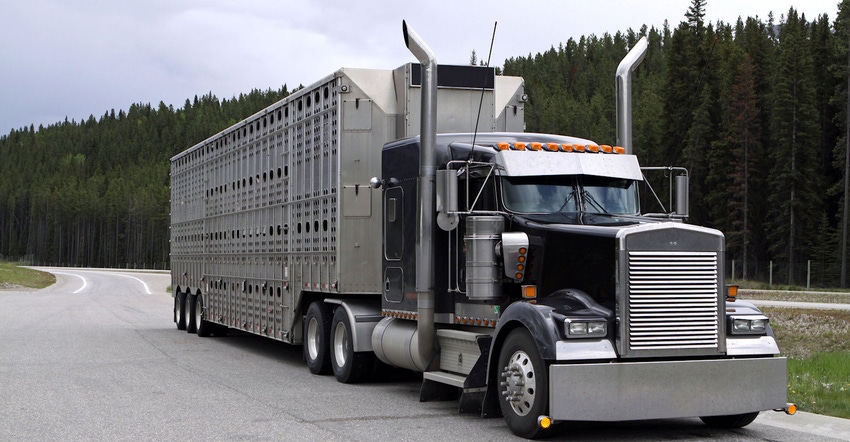Modernizing Agricultural Transportation Act requires DOT to establish a working group to address the implementation of ELDs and the overly-restrictive hours of service rules.

In an ongoing effort to offer agriculture-specific adjustments to the trucking regulations, Sen. John Hoeven (R., N.D.) and Sen. Michael Bennet (D., Colo.) introduced the Modernizing Agricultural Transportation Act, bipartisan legislation to reform the Hours of Service (HOS) and Electronic Logging Device (ELD) regulations at the U.S. Department of Transportation (DOT). Further, the enforcement of the ELD rule would be delayed until the reforms required under the bill are formally proposed by the U.S. Secretary of Transportation.
The “Modernizing Agricultural Transportation Act” would establish a working group at DOT to examine the federal HOS rules and the ELD regulations. The HOS rules limit commercial truckers to 11 hours of driving time and 14 consecutive hours of on-duty time in any 24-hour period. Once drivers reach that limit, they must pull over and wait 10 hours before driving again. ELDs record driving time, engine hours, vehicle movement and speed, miles driven and location information, electronically reporting the data to federal and state inspectors to help enforce the HOS rules.
“Improving highway safety is an important goal, but the rules we put in place must recognize the very real challenges faced by those who haul livestock and other perishable commodities,” said Hoeven. “Our legislation would delay enforcement while ensuring that the HOS and ELD rules are reformed with the concerns of all impacted stakeholders taken into account. That means providing a permanent, flexible solution that both strengthens safety and ensures the humane transportation of livestock.”
“Our bipartisan legislation will provide Colorado’s farmers and ranchers a seat at the table to help develop sensible rules around the transportation of agricultural goods,” said Bennet. “It is important that we maintain safe roads for all, while also recognizing the unique flexibility needed for the transportation of Colorado’s agriculture products.”
Specifically, the Hoeven-Bennet bill would establish a working group at DOT to identify obstacles to the safe, humane and market-efficient transport of livestock and, within one year of the group’s establishment, develop guidelines for regulatory or legislative action to improve the transportation of these commodities. The working group will be comprised of representatives from the transportation and agriculture industries, as well as the U.S. Department of Agriculture, and is required to consider
* The impact, incompatibilities and other challenges and concerns of existing HOS rules and ELD rules under the Federal Motor Carrier Safety Administration (FMCSA) on the commercial transport of livestock, insects and agricultural commodities.
* Initiatives and regulatory changes that maintain and protect highway safety and allow for the safe, efficient and productive marketplace transport of livestock, insects and agricultural commodities.
* Other related issues that the Transportation Secretary considers appropriate.
* Within 120 days of receiving the working group’s report, the Transportation Secretary must propose regulatory changes to the HOS and ELD regulations, taking into account the findings and recommendations of the working group.
The Modernizing Agricultural Transportation Act is supported by the National Pork Producers Council (NPPC), National Cattlemen’s Beef Assn. (NCBA), United States Cattlemen’s Assn., Livestock Marketing Assn., American Farm Bureau Federation, the American Honey Producers Assn. and the Rocky Mountain Farmer’s Union.
NPPC offered its support for the bill. NPPC president Jim Heimerl, a pork producer from Johnstown, Ohio, whose operation also includes a trucking company, said the Hoeven-Bennet bill is a “reasonable solution for developing Hours of Service regulations that protect highway safety while allowing livestock haulers to transport animals in a safe and humane way.”
NCBA president Kevin Kester said his organization was glad to see another bipartisan effort designed to provide much-needed relief for livestock haulers. "We look forward to continuing our work with members of Congress, industry groups, and the Department of Transportation as we work to find solutions to our current transportation concerns.”
About the Author(s)
You May Also Like




.png?width=300&auto=webp&quality=80&disable=upscale)
